BIC interprets 7-day unconditional return policy for online purchases
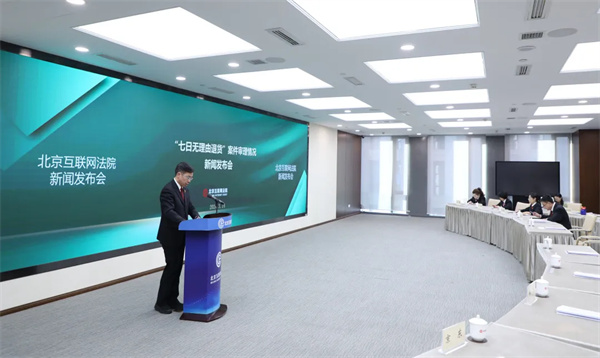
On March 14, one day ahead of the March 15 Consumer Rights Day, the Beijing Internet Court (BIC) held a press conference on its trials involving the 7-day unconditional return policy for online shopping.The court briefed on the trial work and judgment rules for this kind of cases, disclosed their characteristics and issues arisen from such cases, analyzed the reasons behind them, and proposed solutions for the proper handling of such disputes.
Statistics showed that as of Dec 31, 2023, the BIC had accepted 23,792 online consumption-related cases, 679 of which involved a 7-day unconditional return policy, trending upward year by year.
In terms of objects, those cases cover a wide range of types. Disputes over the application of the 7-day unconditional return policy are particularly prominent for items such as mobile phones, tablet computers, jewelry, and jade. Whereas such items as tickets, gold, and blind boxes brought new issues in regards to whether or not they were applicable to the policy.
In terms of litigation entities, such disputes usually involved consumers, e-commerce platforms and their operators. The litigants of e-commerce platform-related cases were diversified, including traditional e-commerce platforms, short video platforms, and ticketing service platforms.
In terms of new litigation characteristics, disputes over the application of the return policy, reverse litigation, exclusion of applications through standard clauses, and derivative disputes arising from goods returns and exchanges are all on the rise.
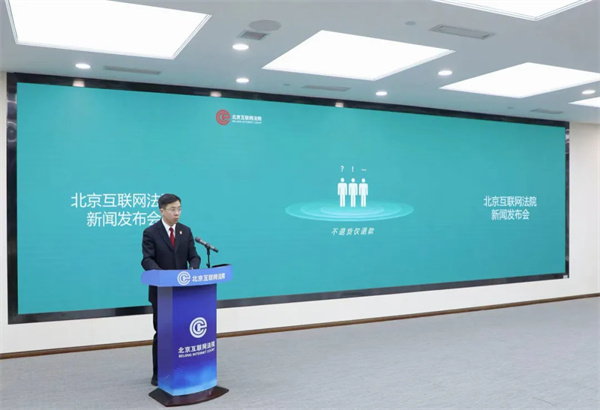
Zhao Ruigang, vice-president of the BIC briefs on the typical cases at the press conference. [Photo/Beijing Internet Court]
Zhao Ruigang, vice-president of the BIC, briefed on the main difficulties in handling these cases, such as determining the scope of goods that are not applicable to the unconditional return policy, and the confirmation of the right to apply the policy.
Some operators arbitrarily expand the scope of goods not eligible for the policy by marking "does not applicable to 7-day unconditional return policy" on the sales page.
To further regulate the application of the policy, the BIC suggested the sellers intensify learning about the policy, proactively disclose information on those products that are not applicable to the policy, and rev up their after-sales efforts.
The e-commerce platforms should actively fulfills their supervisory responsibilities, improve complaint mechanisms, and optimize complaint handling and service protocols. As for consumers, they should fulfill their duty of care when they shop online, fully understand the return policy and shop with good faith, and make sure any goods are intact when they return them, the BIC noted.
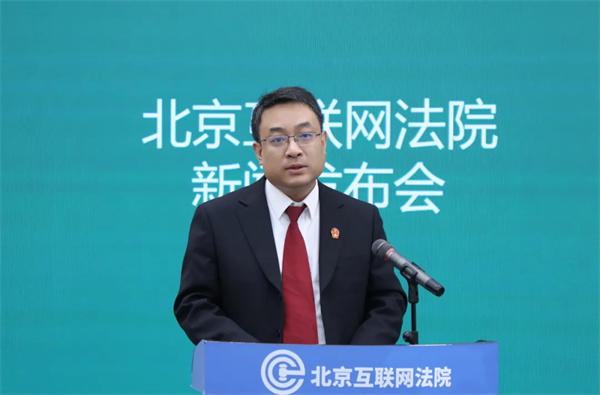
Zhang Lianyong, presiding judge of the BIC's Second Comprehensive Division, disclosed typical cases at the event. [Photo/Beijing Internet Court]
This BIC also disclosed 10 typical cases involving the 7-day unconditional return policy, clarifying that disputes over luxury goods, second-hand digital products, and blind-box products are subject to the policy.
Some irregular practices such as restricting consumers' return rights with standard terms and excluding non-legally specified goods from the application of the policy, were also highlighted and regulated in the cases.
After the press conference, the BIC and the China Consumers Association put forward an initiative to further regulate the application of the 7-day unconditional return policy together with China's major e-commerce platforms, including JD.com and Alibaba, in a bid to foster a better business environment and facilitate the healthy development of the consumer market.
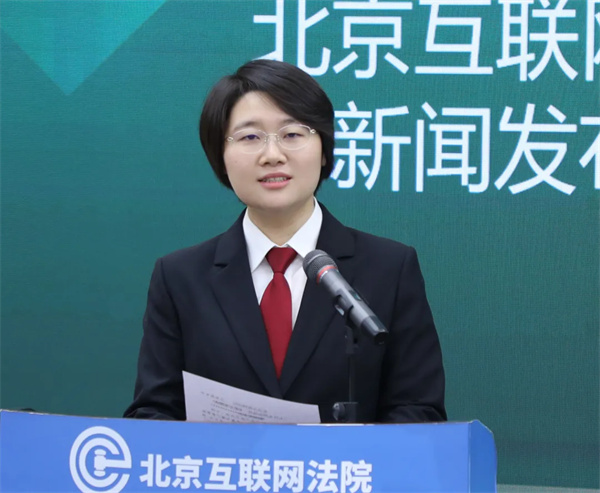
Zhao Xiaochang, deputy head of the BIC's Research Office, chairs the press conference. [Photo/Beijing Internet Court]

 Judicial White Paper
Judicial White Paper
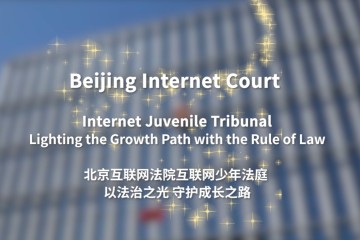 Play
Play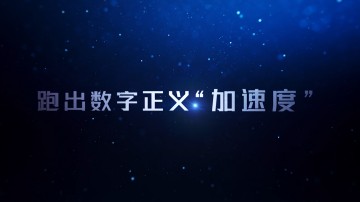 Play
Play Online Lawsuit Guide
Online Lawsuit Guide Beijing Internet Court Lawsuit Service WeChat Account
Beijing Internet Court Lawsuit Service WeChat Account  Beijing Internet Court WeChat Account
Beijing Internet Court WeChat Account